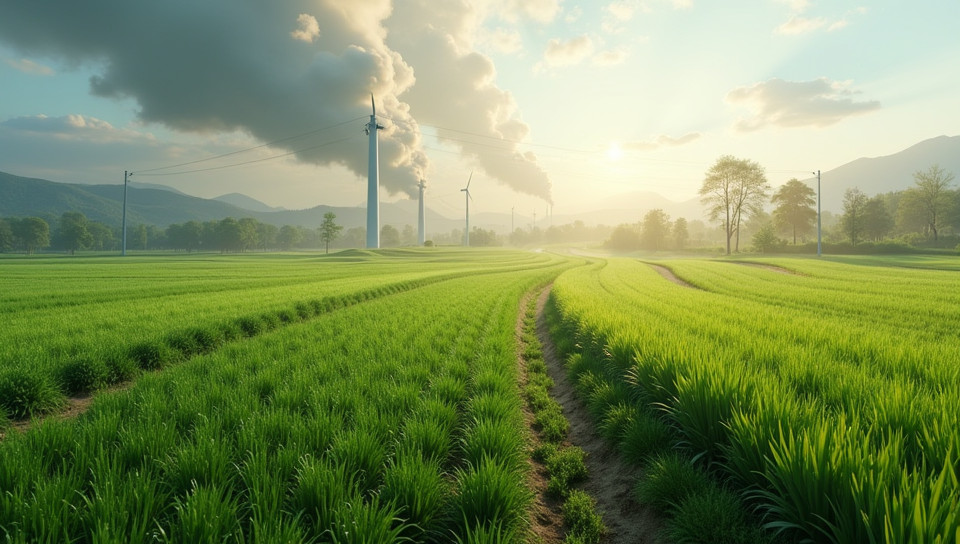High greenhouse gas emissions occur with intensive farming practices 82%

The Dark Side of Intensive Farming: High Greenhouse Gas Emissions
As we sit down to enjoy our meals, have you ever stopped to think about the impact that your food choices are having on the environment? The way our food is produced, processed, and transported can have a significant effect on greenhouse gas emissions, contributing to climate change. One of the primary contributors to this problem is intensive farming practices.
The Problem with Intensive Farming
Intensive farming involves large-scale production of crops and livestock using advanced technology and machinery. While it may seem like an efficient way to meet the world's growing demand for food, it has a number of negative consequences.
- Soil degradation due to erosion and nutrient depletion
- Water pollution from fertilizers and pesticides
- Loss of biodiversity as natural habitats are destroyed
- High energy consumption for irrigation and processing
The Greenhouse Gas Connection
Intensive farming practices not only damage the environment but also release large amounts of greenhouse gases, including carbon dioxide, methane, and nitrous oxide. These gases contribute to global warming, which has severe consequences for our planet.
Consequences of Climate Change
The effects of climate change are far-reaching and devastating:
- Rising sea levels threaten coastal communities
- Extreme weather events such as hurricanes and droughts become more frequent
- Loss of arable land and decreased crop yields impact food security
- Increased risk of water-borne diseases due to changes in temperature and precipitation patterns
A Shift towards Sustainable Agriculture
The good news is that there are alternatives to intensive farming practices. By adopting sustainable agriculture methods, we can reduce greenhouse gas emissions while maintaining food production.
- Implementing crop rotation and cover cropping to improve soil health
- Using renewable energy sources for irrigation and processing
- Promoting agroforestry to increase biodiversity and ecosystem services
- Supporting local farmers and reducing transportation-related emissions
Conclusion
The link between intensive farming practices and high greenhouse gas emissions is clear. By shifting towards sustainable agriculture methods, we can mitigate the effects of climate change while ensuring a secure food supply for future generations. It's time to rethink our approach to food production and make a conscious effort to reduce our carbon footprint.
- Created by: Susan Gutierrez
- Created at: Aug. 20, 2024, 11:10 p.m.
- ID: 7886






